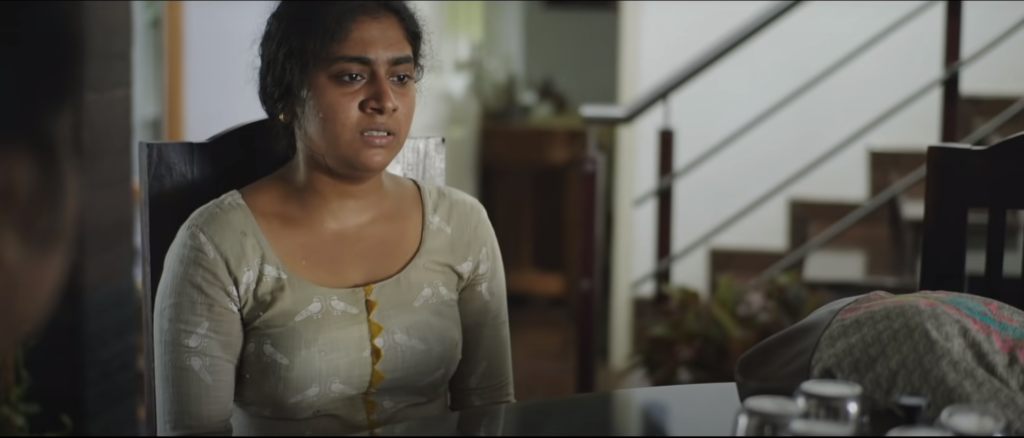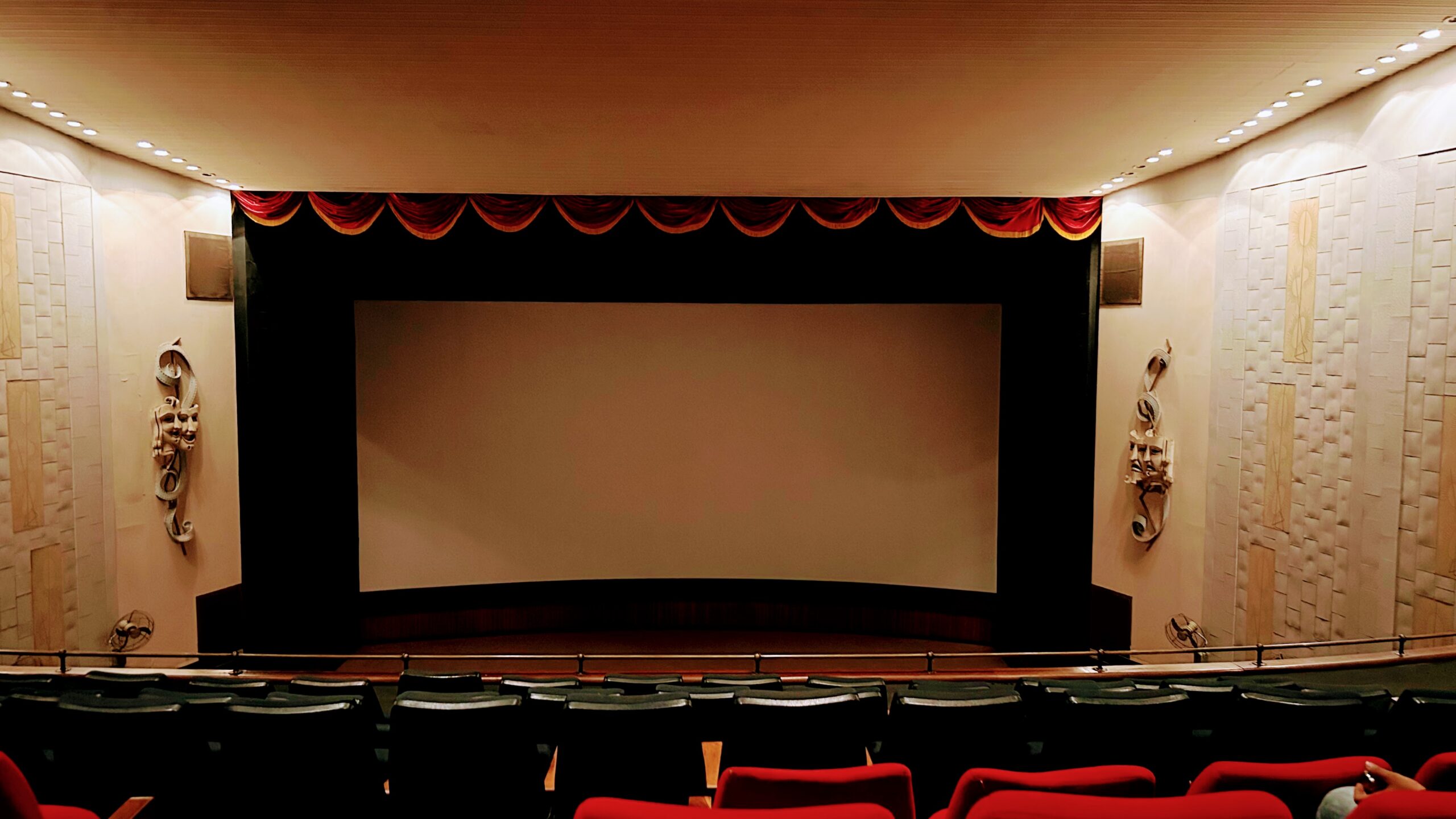Why does it feel like there is still a strong male gaze at the whole woman issue? It is present in both these films, Thappad (2020) as well as The Great Indian Kitchen (2021). Women in these stories perform the same old caricature of the Male Hero.

With all the gung-ho over how we’ve come leaps and bounds with our Great Indian Cinema, we are still stuck with movies that make coy attempts to say something revolutionary with subtlety as a disguise.
The web makes it easy to catch up with world cinema these days.
Characteristics of art cinema are just as easy to mimic. Women Centric is the fancy of the hour so that’s covered, devoid of a musical album, instead insert folk songs and call for cultural references, fly on the wall extended cinematography that captures everyday-ness. With great cinematography we don’t need much dialogue. It’s not too difficult to replicate this new age style these days. Honestly if I am to make any kind of meaningful cinema today I am most likely to make it in similar ways. This is almost the order of the day. This is the parallel mainstream.
But of course, it doesn’t have to end there.
Since the story in question is a regional output, it has got to be oozing with extravagant regionalism, exotic idiosyncrasies of that region with a sense of realism sprinkled for that nice aroma. The recipe for making films that uphold the world cinema sensibilities. Welcome to The Great Indian Kitchen, written & directed by Jeo Baby.
The First thing I liked about the movie is its use of quick montages to take the story forward. It’s a relief to not make me sit through all the unnecessary drama. I will not be wrong to assume that with the barrage of web content these days, the audience is well versed with the idea of a ‘Set-up’ in a story (I personally feel it’s futile, so, I don’t mind if film-makers do away with that). With such a good cinematographer, editor and art director it was a breeze to watch the set-up of this movie fly by. From Tapioca Biryani to stone crushed red chili powders, I have got the opportunity to thoroughly revise my Sambar recipe. This movie can single-handedly call every Keralite back home and vacate one third of the Gulf population. But then it very easily starts indulging in the montage as the vehicle for an extended period.
I can’t help but be reminded of Thappad (2020), made by another male director.
And once you are reminded you can’t un-see the thematic similarity in both the films. This movie starts feeling like a plot rehash with the same intentions. The intentions are great, no doubt. But I am left wondering, for how many more years and how many more male directors do we need who tell women stories–with the hope that it will propel and encourage the “Woman centeric Stories” movement these days.
The greatest achievement of The Great Indian Kitchen is the honesty with which the makers are acutely self reflective. And empathetic to the meagerness of the everyday and systemic struggles. There are many films which make a go at this honesty and empathy but for some reason the attempts come off as if this empathy is on display to demand a reward, a pat on the shoulder and blue tick of being a feminist. Thankfully this movie doesn’t do all of that so much. The makers clearly have great sensibilities, especially in the way disgust was used as provocation. Disgust is the slap equivalent from the movie Thappad.
There are more than one great moments and sequences in the film.
Some of my personal favorites are when the senior lady relative barges into the menstruating woman’s room and very authoritatively upheavals her sleeping arrangement. Felt like a punch in the gut. With no head or tail, simply comes in, snatches away her bed. Another favorite is the inter cut between sweaty painful sex with rotting filth of the kitchen. My nostrils were provoked with how smelly the hand got! I get it.
There are a hundred great things about this movie.
But my concern is, why does it feel like there is still a strong male gaze at the whole woman issue. It is present in both these films, Thappad as well as The Great Indian Kitchen. Women in these stories perform the same old caricature of the Male Hero. Let me explain how. Just take a close look at several popular “Women-centric” movies made by men, and you will notice a template ‘Angry Man’ behavior- in the way the women react to their circumstances, the stylistic heroic backlash in the climax, the ‘I will avenge you’ kind of psyche and the general style of their revenge. These patterns predominantly fit in that mold. This is an ‘Angry Man’s’ vocabulary. I wish there was a space for an original style of reaction! I strongly believe that such renditions are simply a male imagination of how they would react if they were subjected to structural oppression of such kind.

Now let us address the aspirations that such stories attempt to inculcate. A woman facing predominantly domestic issues can, will and should walk out of the marriage when it gets unbearable. It is important to note that such kinds of moves are down right impossible for the majority of the woman demographic in India. Such moves can be exercised only by women with some of the following privileges, a home, a non toxic, non demonising family, and an acceptable amount of wealth for dealing with issues arising post divorce and a strong moral eco-system that doesn’t demonise a divorcee. In short, very few women have such privileges!
This temptation to elicit a heroic reaction, from your protagonist to their conflict in any movie could be traced to a lesson incessantly taught to screenwriters. The idea of a ‘Hero’s Journey’ and how he/she should have a need and that need should and must be achieved at the end of the movie. There is almost always an attempt to compel your ‘Hero’ to do something and sort of win the game. The sole intention is to give closure to the fire you (screenwriter/filmmaker) have invoked in the audience.
Now, just imagine that the fight for women’s rights is behind us.
I know it’s wishfully utopian right now. But let’s just imagine such a scenario. Don’t you think there would be space for a sensibility that is beyond such an archetype? If such stories were to become a part of our history in which women overcame some tough scenarios, we would unintentionally leave an imprint of predominantly male strategies on how to deal with ‘tough’ issues. Are we not leaving any space for original thought (behaviours) to take place. Or am I simply naive and all human beings behave this way only? With a ‘I’ll bite you back’ revenge attitude? And if this is so, what was all that about women’s sensibilities that are somehow more graceful, refined with better acuity and refined perceptiveness? The disadvantage of my perception here is that such movies are best shown and targeted to a certain demographic. I am well aware.
Recently I’ve attempted to make myself familiar with issues of structural caste oppression in India.
There is an interesting phenomenon I’ve come across called “Saviour Complex”. This concept is nothing new. But this was the first time I understood how such a psychological phenomenon could be at play on a structural level at such a large scale without many people realizing it. As more people are encouraged to make such coy movies, I fear and wonder what if with the popularisation of such movies, we are also encouraging a similar version of savior complex in the context of the sudden realization of oppression against women at our hands.
These questions will remain unanswered at least for a few more years because right now there is a lot of sudden excitement around regional movies finding their ground and establishing themselves as great cinema alternatives.
If any immediate social usefulness of this movie has to be harnessed, then we must be well aware that majority of women and men are non-English and non-Malayalam speakers in India, who can maybe read Marathi, Gujarati, Odia, Bengali or major North Eastern and South Indian languages. Such good spirited films can benefit when they are localized to such demographics. Until then The Great Indian Kitchen remains a classic case of preaching to the converted.

Why The Black Bored? Why Art?
Now more than ever we need Art. Technologically these are the most craziest and dizzying times. The threat of all of us moving away from each other is real.